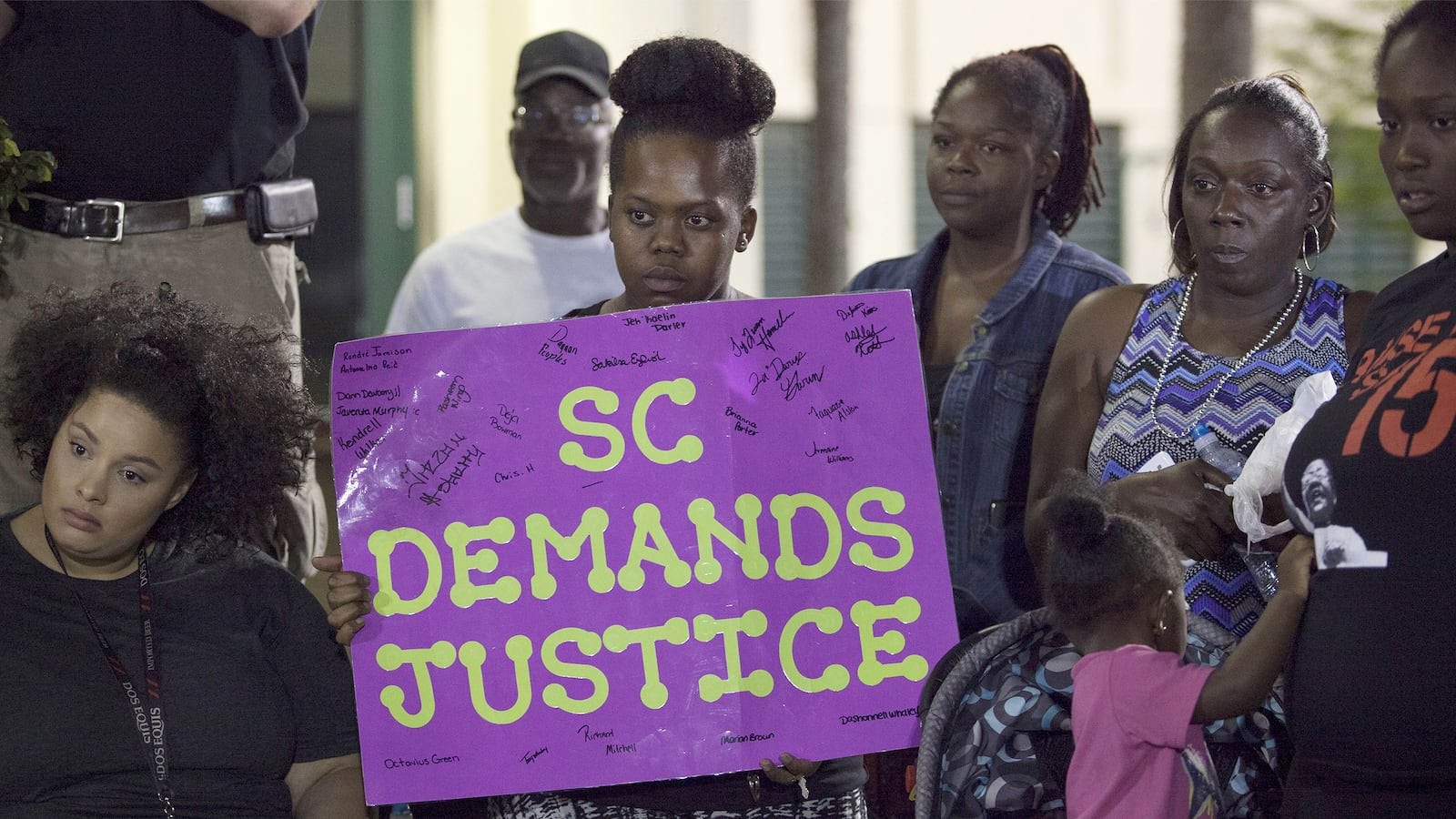Last Saturday’s fatal shooting of Walter Scott by North Charleston police officer Michael Slager is the latest in a series of fatal shootings of unarmed African American men by white police officers, but this time the officer was swiftly charged with a crime: murder.
There are two U.S. Supreme Court cases that articulate the bases upon which triers of fact must evaluate the propriety of the police’s use of force, in this case deadly force. Slager will almost certainly be tried before a jury in South Carolina, and this jury will be charged with making a determination as to Slager’s justification in the use of force using criteria articulated by the Supreme Court in Tennessee v. Garner (1985) and Graham v. Connor (1989).
Garner states that deadly force “may not be used unless necessary to prevent (an) escape and the officer has probable cause to believe that the suspect poses a significant threat of death or serious physical injury to the officer or others.” Scott was attempting to escape from Slager, and Slager’s attorney will no doubt attempt to convince the jury of Scott’s “dangerousness” and his intention to cause injury to Slager or some innocent person through some Machiavellian depiction of Scott’s criminal history and potential for violence. This latter challenge may prove vexing for defense counsel at Slager’s murder trial, but demonizing black men who meet a fateful end at the hands of a police officer in the United States has a demonstrable history of successful results—for the police.
The second relevant Supreme Court case is Graham v. Connor and it is here that Slager’s defense will likely prevail against the prosecution’s representation that Slager murdered Scott, since Graham gives wide latitude and the benefit of the doubt to the police in the use of force, particularly deadly force.
Graham holds that any determination of the “reasonableness” of a particular “seizure” under the Fourth Amendment’s prohibition of unreasonable searches and seizures “must be judged from the perspective of a reasonable officer at the scene, rather than with the vision of 20-20 hindsight” (of say, a non-police officer sitting on a jury). Graham also mandates that the “seizure” (of Scott), be judged from the perspective of a reasonable officer who might have been at the scene of the shooting, and not some otherwise reasonable person who does not share the law enforcement pedigree and worldview.
Graham establishes the standard for evaluating the police use of force as one of “objective reasonableness” and the decision explicitly acknowledges that police officers are often called upon to make “split-second judgments—in circumstances that are tense, uncertain, and rapidly evolving about the amount of force that is necessary in a particular situation.” Even, it would seem, when the amount of force “necessary” proves to have an extremely unfortunate result for someone like Scott.
Graham would have the jury in Slager’s case question the severity of the crime that Scott is alleged to have committed prior to and during his encounter with Slager, as well as whether or not Scott posed a threat to the safety of Officer Slager or other innocent bystanders. Scott’s attempt to resist arrest and to flee are also at issue in evaluating Slager’s use of deadly force, in accordance with Graham’s criteria.
Section 16-3-10 of the South Carolina Code of Laws defines murder as
“the killing of any person with malice aforethought, either express or implied.” The prosecution in the Slager case will face formidable obstacles in convincing a jury that the officer acted with express or implied malice, particularly given the broad discretion and latitude afforded to the police in Graham, and, to a lesser extent, Garner. Slager’s defense counsel need only demonstrate that Slager was confronted with a situation whose exigency required split-second judgments in a tense and rapidly evolving set of circumstances that was fraught with uncertainty, peril, and danger.
The very nature of so-called “reasonableness” is inherently subjective and easy fodder for defense counsel at trial. Slager’s attorneys will portray him as a courageous, selfless, dedicated, even heroic police officer, one who unflinchingly faced danger on a daily basis, and one who may have made a mistake, but a flawed human like the rest of us who is certainly no murderer full of malice.
I am as sickened and as outraged as most who saw the tragic video of Walter Scott’s final moments, but of this I have little doubt: Michael Slager is not going to prison for killing Walter Scott. I hope that I am wrong.






